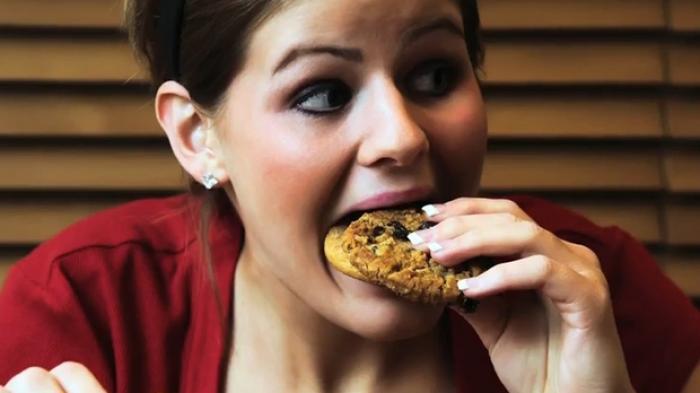At first thought, the introduction of snacks into the library may sound like a good thing. Many universities around the UK are more lax than Leeds about the consumption of food and drink. York, for instance, allows drinks and cold food, whereas our libraries limit us to bottled water only. Sure, not having to go outside into the cold for a much needed sugar hit during a long study session would be nice, but introducing snacks into the library would have its drawbacks.
My first concern, and perhaps the most important one, is the fate of books. If you spill your food on a book, you run the risk of damaging it. Some books are expensive and, in a lot of cases, rare. Academics have spent a lot of time on these books so to damage them, whether intentional or not, would be disrespectful. Plus, it’s annoying enough when you are searching for a book and the university only has one copy which is already being used for someone’s dissertation; if that said book was then unavailable because someone had spilt food on it, it would be inconvenient.
Also, a lot of foods smell, whether it be a good or a bad smell. Food that has a bad smell could be off-putting to fellow library users, causing them to have to find a new place to study. Alternatively, nice smelling food could put people off their concentration, forcing them to leave to go and get something to eat. This would be problematic if you were working on a time-dependent piece of work. The smell of food can also linger; once someone eats something particularly potent it may remain for a while, which could affect library users over the following days.
Food in the library also poses a health concern to people with food allergies, especially as some can be life-threatening, such as nut allergies. If people have allergies they are then limited by where they can study which is unfair. Everyone is entitled to study in a place that is safe for them, so snacks could unfairly compromise this. Some areas of the library are fairly small so if you were to open a bag of mixed nuts next to someone with a nut allergy, a lot of harm could be caused.
The introduction of food into the libraries also makes more work for the cleaners. Spillages, morsels of food, and rubbish will litter the floors of the libraries. The cleaners already have enough to clean without this added responsibility. I work in a coffee shop in one of the libraries so I know firsthand the mess that can be created and the effort that goes into clearing it up.
Leaving the libraries to eat forces you to have a break from long study sessions. Although it may seem like a waste of time, breaks have been proven to aid in studying. It is healthy to separate the two activities of studying and eating. A few minutes of fresh air and food, away from the intense library environment, could really help in the long term.
Fundamentally, the libraries are areas for studying, not for eating. There are so many places to eat at the university; if we need more then that is an issue for the university, not the libraries. The introduction of snacks would create a lot of different issues for both the library users and staff. And where would we draw the line between a snack and a meal?
Eleanor Smith

